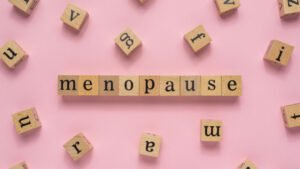Entering menopause is a significant and transformative phase in a woman’s life, marked by a range of physical and emotional changes. One common and often overlooked aspect is the prevalence of anxiety during this transition. Menopause anxiety can manifest in various ways, affecting a woman’s overall well-being. Fortunately, there are medications and strategies available to alleviate these symptoms and promote a smoother journey through menopause. In this blog, we will explore the complexities of menopause anxiety and delve into some menopause anxiety medication options.
Contents
What Is Menopause Anxiety?
 Menopause anxiety is a psychological phenomenon characterized by heightened feelings of worry, fear, and unease that coincide with the onset of menopause. It is a natural phase in a woman’s life typically occurring in her late 40s or early 50s. This anxiety is often linked to the significant hormonal fluctuations that accompany menopause, particularly the decline in estrogen levels. As estrogen levels decrease, these neurotransmitters may become imbalanced, contributing to the manifestation of anxiety symptoms.
Menopause anxiety is a psychological phenomenon characterized by heightened feelings of worry, fear, and unease that coincide with the onset of menopause. It is a natural phase in a woman’s life typically occurring in her late 40s or early 50s. This anxiety is often linked to the significant hormonal fluctuations that accompany menopause, particularly the decline in estrogen levels. As estrogen levels decrease, these neurotransmitters may become imbalanced, contributing to the manifestation of anxiety symptoms.
Menopause anxiety can manifest in various ways, including:
- increased irritability
- restlessness
- sleep disturbances
- difficulty concentrating
- impacting a woman’s overall well-being
The emotional toll of menopause anxiety is compounded by the concurrent physical changes and challenges that menopausal women may face. It is essential for women experiencing menopause anxiety to recognize the interconnectedness of physical and emotional aspects, seek support, and explore various strategies to manage and alleviate these symptoms effectively.
What Are The Examples Of Menopause Anxiety Medication?
Several menopause anxiety medications may be prescribed to help manage menopause-related anxiety. It’s important to note that the choice of medication depends on the specific symptoms and individual health considerations. Here are some examples of menopause anxiety medication:
Antidepressants
- Selective Serotonin Reuptake Inhibitors (SSRIs): SSRIs are a class of antidepressants that work by increasing the levels of serotonin, a neurotransmitter associated with mood regulation, in the brain. Fluoxetine (Prozac), sertraline (Zoloft), and paroxetine (Paxil) are commonly prescribed SSRIs for managing menopausal anxiety. These medications can help alleviate symptoms such as persistent worry, irritability, and mood swings.
- Serotonin-Norepinephrine Reuptake Inhibitors (SNRIs): Venlafaxine (Effexor) is an SNRI that affects both serotonin and norepinephrine levels. SNRIs are often considered when SSRIs alone do not provide sufficient relief. By modulating neurotransmitters, SNRIs can address not only anxiety but also associated symptoms like fatigue and low energy levels.
Benzodiazepines
- Alprazolam (Xanax), Lorazepam (Ativan), Diazepam (Valium): Benzodiazepines are a class of medications that act on the central nervous system, producing a calming effect. They are typically prescribed for short-term relief of acute anxiety symptoms. However, due to the potential for dependence and side effects such as drowsiness and dizziness, healthcare providers approach benzodiazepines with caution, often considering them when other options are ineffective.
Hormone Replacement Therapy (HRT)
- Estrogen Therapy: Hormone Replacement Therapy involves supplementing the body with estrogen to address the hormonal imbalances that contribute to menopausal symptoms, including anxiety. Estrogen therapy is available in various forms, including oral pills, patches, and topical creams. While it can effectively alleviate anxiety, healthcare providers carefully assess the risks and benefits, considering factors such as a woman’s overall health and medical history.
Buspirone (Buspar)
Buspirone is an anxiolytic medication that works by affecting serotonin and dopamine levels in the brain. It is often used to manage generalized anxiety disorder and may be considered for menopausal anxiety. Unlike benzodiazepines, buspirone is less likely to cause dependence or significant sedation, making it a suitable option for some individuals.
Gabapentin (Neurontin)
Originally developed to treat seizures, gabapentin has also been found to have an impact on symptoms like hot flashes. While it may indirectly contribute to anxiety relief by addressing other menopausal symptoms, its precise mechanism in managing anxiety is not fully understood. Gabapentin is generally considered when other medications are not well-tolerated or are ineffective.
It’s crucial for individuals considering menopause anxiety medication to have open and thorough discussions with their healthcare providers. The choice of medication depends on factors such as the specific nature of anxiety symptoms, overall health, and individual response to treatment.
What Is The Best Medication For Menopause Anxiety?
 Choosing the best medication for menopause anxiety is a highly individualized process that depends on various factors, including the nature and severity of symptoms, overall health, and personal preferences. Here are some tips to help guide the decision-making process:
Choosing the best medication for menopause anxiety is a highly individualized process that depends on various factors, including the nature and severity of symptoms, overall health, and personal preferences. Here are some tips to help guide the decision-making process:
- Consult with a Healthcare Professional
Start by scheduling a thorough consultation with a healthcare provider, preferably one experienced in menopausal health. They will evaluate your medical history, conduct a comprehensive assessment of your symptoms, and discuss any existing health conditions.
- Consider the Nature of Anxiety Symptoms
Different medications target specific aspects of anxiety. If anxiety is accompanied by depressive symptoms, an antidepressant an SSRI or SNRI may be appropriate. For more acute or short-term anxiety relief, benzodiazepines may be considered cautiously.
- Discuss Potential Side Effects
Be open about your concerns regarding potential side effects. Different medications have different side effect profiles. Some may cause drowsiness, dizziness, or changes in libido. Discussing these potential side effects with your healthcare provider can help in choosing a medication that aligns with your lifestyle and tolerability.
- Assess Personal Health History
Consider your personal health history, including any pre-existing medical conditions or medications you are currently taking. Certain medications may interact with each other, and your healthcare provider will need to ensure compatibility with your existing health regimen.
- Evaluate Long-Term vs. Short-Term Goals
Clarify whether you are seeking short-term relief for acute symptoms or a longer-term solution for ongoing anxiety. Medications like benzodiazepines may provide rapid relief but are often recommended for short-term use due to the risk of dependence. Antidepressants and HRT may offer longer-term benefits.
- Regular Follow-Up and Monitoring
Once a medication is prescribed, it’s essential to maintain regular follow-up appointments with your healthcare provider. Monitoring your response to the medication, assessing side effects, and making adjustments to the treatment plan as needed are crucial for optimal outcomes.
- Educate Yourself
Take the time to educate yourself about the medications being considered. Understand how they work, potential side effects, and what to expect during the treatment process. Being informed empowers you to actively participate in decisions about your healthcare.
Remember, there is no one-size-fits-all solution for menopause anxiety. The goal is to find a treatment plan that addresses your specific needs while minimizing potential risks.
What Are Some Holistic Approaches To Help Menopause Anxiety?
 Holistic approaches to managing menopause anxiety involve addressing the physical, emotional, and lifestyle aspects of well-being. Here are some holistic strategies that may help alleviate anxiety during menopause:
Holistic approaches to managing menopause anxiety involve addressing the physical, emotional, and lifestyle aspects of well-being. Here are some holistic strategies that may help alleviate anxiety during menopause:
Mindfulness Meditation
Practicing mindfulness meditation can help women become more aware of their thoughts and emotions, promoting a sense of calm. Mindfulness techniques, such as deep breathing and guided meditation, can be integrated into daily routines to reduce stress and anxiety.
Yoga
Yoga combines physical postures, breathing exercises, and meditation, providing a holistic approach to managing anxiety. Regular yoga practice has been shown to improve mood, reduce stress, and enhance overall well-being.
Acupuncture
Acupuncture involves the insertion of thin needles into specific points on the body to balance energy flow. Some women find acupuncture helpful in reducing anxiety symptoms associated with menopause. Consult with a qualified practitioner to explore this option.
Herbal Remedies
Certain herbal supplements, such as black cohosh and red clover, are believed to have potential benefits in managing menopausal symptoms, including anxiety. However, it’s crucial to consult with a healthcare professional before trying herbal remedies, as they may interact with medications or have varying effects on individuals.
Aromatherapy
Essential oils, such as lavender and chamomile, are known for their calming properties. Incorporating aromatherapy through diffusers, massage oils, or bath salts may help promote relaxation and alleviate anxiety.
Regular Exercise
Engaging in regular physical activity can have profound effects on mood and anxiety. Activities such as walking, jogging, swimming, or dancing not only improve physical health but also stimulate the release of endorphins, the body’s natural mood lifters.
Healthy Diet
Adopting a well-balanced and nutritious diet can positively impact both physical and mental health. Foods rich in omega-3 fatty acids (found in fish, flaxseeds, and walnuts) and antioxidants (found in fruits and vegetables) may support brain health and reduce inflammation, potentially influencing anxiety levels.
Counseling and Therapy
Seeking counseling or therapy can provide a supportive space to discuss and manage the emotional aspects of menopause. Cognitive-behavioral therapy (CBT) and other therapeutic approaches can help women develop coping strategies and navigate life changes.
Social Support
Maintaining strong social connections is crucial during menopause. Sharing experiences with friends, family, or support groups can provide emotional support, reduce feelings of isolation, and contribute to overall mental well-being.
Quality Sleep
Prioritize good sleep hygiene by establishing a consistent sleep routine, creating a comfortable sleep environment, and managing stress before bedtime. Quality sleep is essential for mood regulation and overall health.
It’s important to note that holistic approaches work differently for each individual, and their effectiveness may vary. Before incorporating any new strategies, it’s advisable to consult with a healthcare professional. They will help to ensure they align with your specific health needs and do not interfere with existing treatments.
Conclusion
In conclusion, menopause anxiety medication involves a multifaceted approach that includes both medication and holistic strategies. Understanding the emotional and physical aspects of menopause anxiety is the first step, followed by consulting with healthcare professionals to explore suitable medications, such as antidepressants or hormone replacement therapy. Holistic approaches, including mindfulness practices, yoga, and a balanced lifestyle, complement these medications, offering a comprehensive solution.
The key is personalization—finding the right combination of strategies that suit individual needs. With open communication, regular check-ins with healthcare providers, and a supportive network, women can confidently manage menopause anxiety. If you are facing menopause-related issues, menopause treatment at HerMantra can help. Book your free trial online menopause treatment session now.


